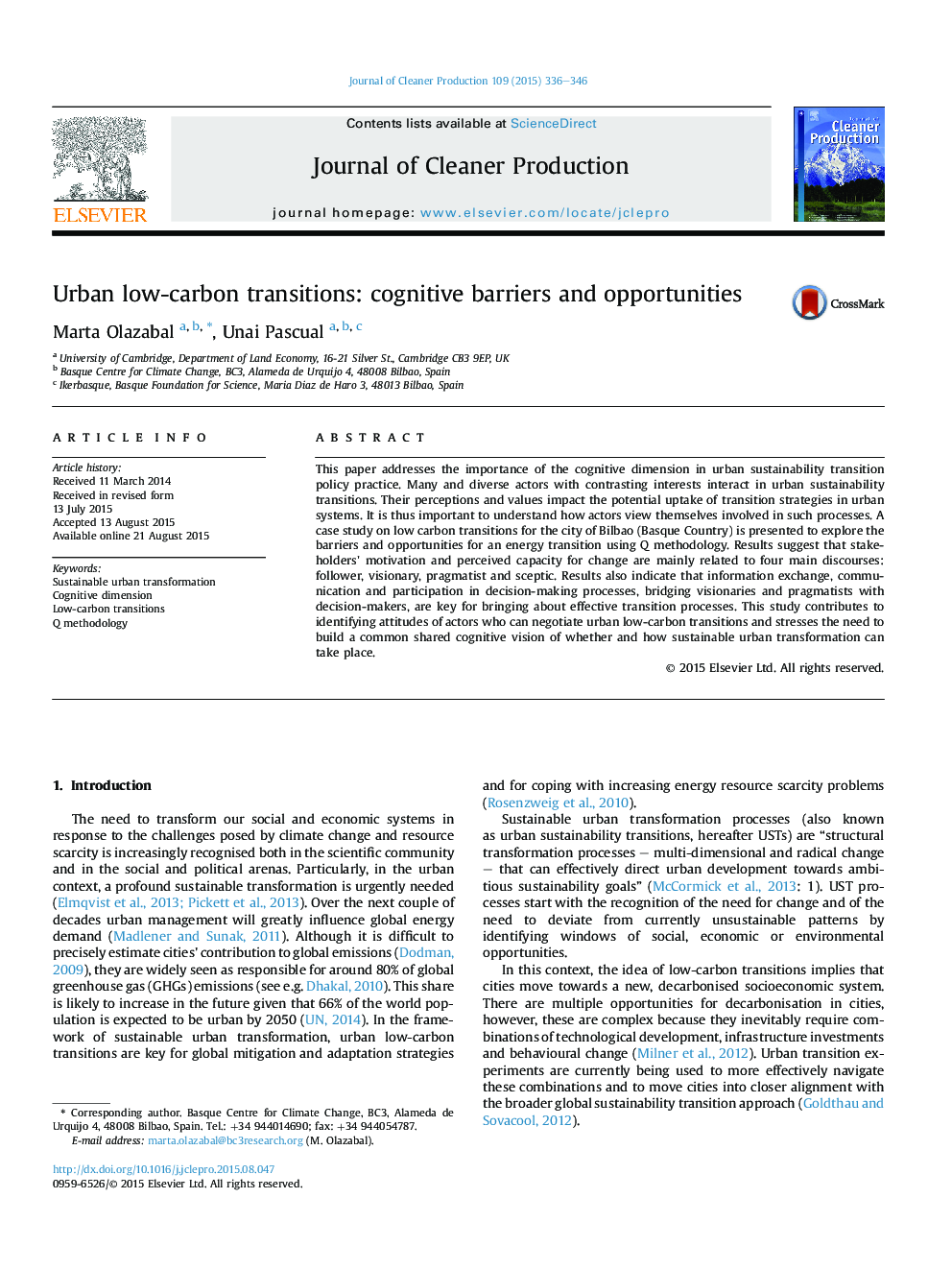| Article ID | Journal | Published Year | Pages | File Type |
|---|---|---|---|---|
| 1744519 | Journal of Cleaner Production | 2015 | 11 Pages |
•Urban low-carbon transitions are key in responding to global environmental change.•The cognitive domain underpins the barriers to and opportunities for a transition process.•A Q-method approach is used to capture stakeholders' perspectives.•Four visions or discourses are revealed in regard to Bilbao's energy future.•Linking visionaries and pragmatists with decision-makers is essential.
This paper addresses the importance of the cognitive dimension in urban sustainability transition policy practice. Many and diverse actors with contrasting interests interact in urban sustainability transitions. Their perceptions and values impact the potential uptake of transition strategies in urban systems. It is thus important to understand how actors view themselves involved in such processes. A case study on low carbon transitions for the city of Bilbao (Basque Country) is presented to explore the barriers and opportunities for an energy transition using Q methodology. Results suggest that stakeholders' motivation and perceived capacity for change are mainly related to four main discourses: follower, visionary, pragmatist and sceptic. Results also indicate that information exchange, communication and participation in decision-making processes, bridging visionaries and pragmatists with decision-makers, are key for bringing about effective transition processes. This study contributes to identifying attitudes of actors who can negotiate urban low-carbon transitions and stresses the need to build a common shared cognitive vision of whether and how sustainable urban transformation can take place.
